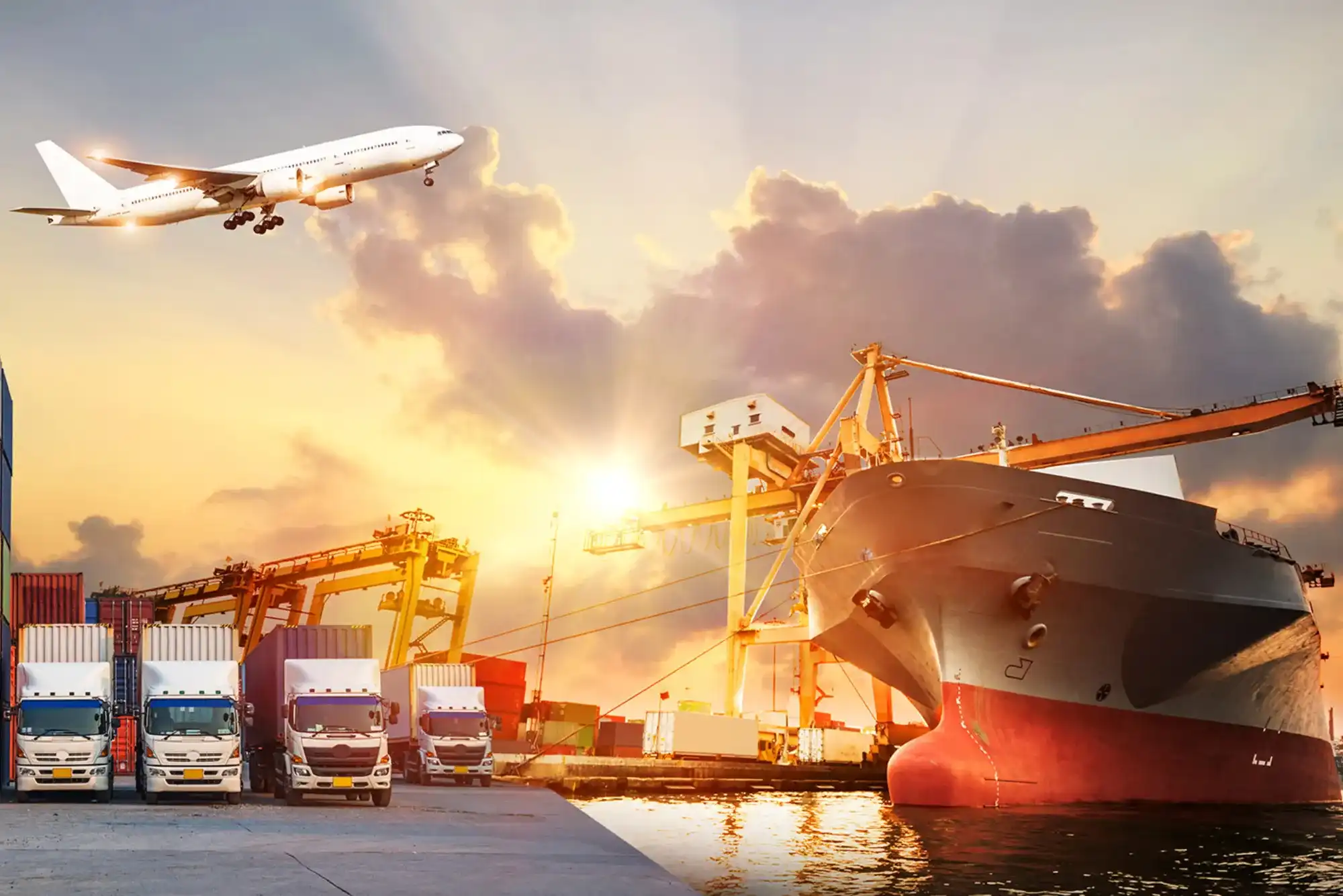Introduction
Are you curious about the intricate web of international shipping and its pivotal role in powering global commerce? Picture this: goods produced in one corner of the world seamlessly making their way to another, traversing vast oceans and continents. It’s a marvel of modern logistics, yet beneath the surface lies a labyrinth of challenges and complexities. From navigating fluctuating regulations to optimizing transportation routes, international shipping demands precision and expertise.
In this dynamic landscape, insights from industry leaders serve as guiding stars, illuminating the path to successful navigation. Their wealth of experience and strategic foresight offer invaluable wisdom, helping businesses surmount obstacles and seize opportunities in the ever-evolving global market.
Join us as we embark on a journey through the depths of international shipping, exploring the insights and strategies shared by industry leaders. Together, let’s uncover the keys to unlocking efficiency, reliability, and success in the realm of global trade.
The Evolution of International Shipping
Advancements in Technology
- Containerization Revolution: The adoption of standardized containers revolutionized international shipping in the mid-20th century, streamlining loading, unloading, and transportation processes.
- Advances in Vessel Design: Modern vessels equipped with cutting-edge technology, such as GPS navigation and automated systems, enable more efficient and safer transportation of goods across oceans.
- Digitalization of Documentation: The transition from paper-based documentation to digital platforms has expedited communication and streamlined administrative processes, reducing paperwork and enhancing efficiency.
Impact of Trade Agreements
- Tariff Reduction: Trade agreements like NAFTA and the WTO have facilitated tariff reductions, promoting international trade and lowering shipping costs for businesses.
- Standardization of Regulations: Harmonization of trade regulations among participating countries has simplified customs procedures, reducing delays and uncertainties in international shipping.
Responding to Global Market Demands
- Demand for Faster Delivery: With the rise of e-commerce and consumer expectations for rapid delivery, international shipping companies are adapting by offering expedited services and optimizing supply chain networks.
- Sustainability Concerns: Growing awareness of environmental issues has prompted shipping companies to explore eco-friendly practices, such as alternative fuels and emission reduction strategies, to mitigate their carbon footprint.
Key Challenges in International Shipping
Regulatory Compliance
- Complexity of Regulations: Navigating diverse and often-changing regulations across different countries poses challenges for ensuring compliance and avoiding penalties.
- Risk of Non-Compliance: Failure to comply with regulations related to customs documentation, trade sanctions, and environmental standards can result in delays, fines, and reputational damage.
Customs Clearance
- Documentation Accuracy: Inaccurate or incomplete customs documentation can lead to delays and additional scrutiny during the clearance process.
- Customs Brokerage Services: Engaging experienced customs brokers can help ensure compliance with customs regulations and expedite clearance procedures.
Logistics Management
- Supply Chain Disruptions: Unexpected events such as natural disasters, port congestion, or labor strikes can disrupt supply chain operations and cause delays in shipping schedules.
- Supply Chain Visibility: Implementing advanced tracking technologies and real-time monitoring systems improves visibility into supply chain processes, enabling proactive management of potential disruptions.
The Importance of Technology in Modern Shipping
Tracking and Tracing Systems
- GPS Tracking: Real-time tracking systems using GPS technology enable shippers to monitor the location and status of cargo throughout its journey, enhancing transparency and security.
- Blockchain Technology: Blockchain-based platforms offer secure and immutable record-keeping for supply chain transactions, reducing the risk of fraud and improving accountability.
Logistics Management Solutions
- Inventory Optimization: Advanced software solutions use data analytics to optimize inventory levels and minimize stockouts, improving efficiency and reducing storage costs.
- Route Optimization: Algorithms analyze factors such as distance, fuel consumption, and traffic conditions to identify the most cost-effective and time-efficient shipping routes.
Automation and Robotics
- Automated Terminals: Automated container terminals equipped with robotic cranes and conveyor systems increase efficiency and reduce turnaround times for vessel operations.
- Drone Delivery: Emerging technologies such as drone delivery promise to revolutionize last-mile logistics, offering faster and more flexible delivery options in remote or congested areas.
Sustainable Practices in Shipping
Importance of Sustainability
- Environmental Impact: The shipping industry accounts for a significant portion of global emissions, prompting increased scrutiny and pressure to reduce its carbon footprint.
- Regulatory Compliance: Stringent environmental regulations and emissions targets set by international bodies necessitate the adoption of sustainable practices to remain compliant and avoid penalties.
Addressing Environmental Concerns
- Alternative Fuels: Transitioning from traditional fossil fuels to cleaner alternatives such as liquefied natural gas (LNG) or biofuels reduces greenhouse gas emissions and air pollution.
- Emission Reduction Technologies: installation of exhaust gas cleaning systems (scrubbers) and ballast water treatment systems helps mitigate the environmental impact of shipping operations.
Choosing the Right Shipping Partner
Criteria for Selection
- Reliability: A reliable shipping partner ensures timely delivery and minimizes the risk of disruptions in supply chain operations.
- Network Reach: Extensive global network coverage enables access to diverse markets and facilitates the efficient transportation of goods across borders.
- Service Offerings: Comprehensive service offerings, including freight forwarding, customs clearance, and warehousing, provide end-to-end solutions for logistical needs.
Value of Partnerships
- Business Objectives: Collaborating with a trusted shipping partner aligns with strategic objectives such as expanding market reach, reducing costs, and enhancing customer satisfaction.
- Expertise and Resources: Leveraging the expertise and resources of a shipping partner enables businesses to focus on core competencies while entrusting logistics management to industry professionals.
In the context of selecting the right shipping partner, BAFCO International’s extensive experience and comprehensive array of services stand out prominently.
Their dedication to enhancing supply chains and ensuring smooth cargo movement, coupled with their responsive, reliable, and technologically driven logistics solutions, place them at the forefront of the industry.
With a history spanning over 30 years and a suite of services that includes ocean freight, air freight, ground transportation, warehousing, project cargo handling, container terminal operations, supply chain management, and customs clearance, BAFCO International is well-equipped to meet the diverse needs of clients globally.
Moreover, their prestigious certifications, such as the IATA CASS Associate, FIATA membership, affiliation with the WCA, and recognition by the FMC, affirm their commitment to quality, safety, and environmental stewardship.
The adherence to best practices within a competitive and environmentally friendly industry supports BAFCO International’s vision to be the top choice for logistics solutions, both nationally and internationally.
This makes BAFCO International an ideal partner for businesses looking to navigate the complexities of international shipping with a trusted, experienced, and capable ally.
Conclusion
Industry leaders, including BAFCO International, underscore the critical importance of embracing sustainability, selecting reliable partners, and staying ahead of emerging trends in international shipping. By prioritizing environmentally friendly practices, choosing partners like BAFCO International with their vast network coverage and comprehensive service offerings, and keeping pace with technological advancements, businesses can adeptly navigate the intricacies of global logistics.
Are you ready to enhance your shipping strategies and contribute to a sustainable future in global trade? Connect with BAFCO International today to leverage our extensive experience, comprehensive logistics solutions, and commitment to excellence. Let BAFCO be your trusted partner in navigating the complexities of international shipping, driving your business towards unparalleled success. Visit their website or contact them directly to learn more about how they can support your logistics needs in this ever-evolving industry.
FAQ
1. What are the key challenges in international shipping?
Key challenges include regulatory compliance, customs clearance delays, logistics management, supply chain disruptions, and sustainability concerns. Industry leaders recommend proactive strategies and partnerships to address these challenges effectively.
2. How can businesses ensure regulatory compliance in international shipping?
Businesses can ensure compliance by staying updated on international regulations, engaging experienced customs brokers, maintaining accurate documentation, and implementing robust compliance protocols across their supply chain.
3. What factors should businesses consider when choosing a shipping partner?
Factors to consider include reliability, network reach, service offerings, expertise in regulatory compliance, sustainability practices, and adaptability to emerging trends. Selecting a partner aligned with business objectives is crucial for successful international shipping.
4. What are some emerging trends shaping the future of international shipping?
Emerging trends include autonomous shipping, blockchain technology in logistics, digital freight platforms, alternative fuels, and eco-friendly practices. Industry leaders emphasize the importance of embracing innovation to stay competitive in the evolving shipping landscape.
5. How can businesses prepare for the future of international shipping?
Businesses can prepare by investing in technology, fostering strategic partnerships, prioritizing sustainability initiatives, and staying informed about industry trends and regulatory changes. Adaptability and proactive planning are key to navigating future challenges and opportunities in international shipping.
























